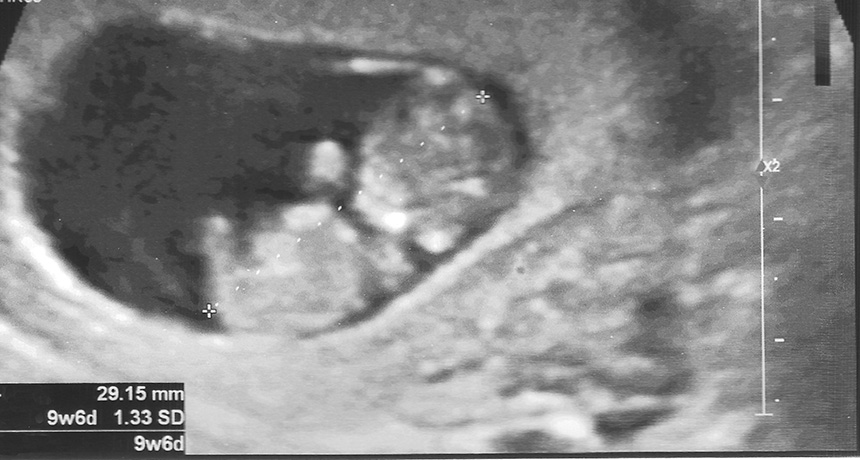A Pap smear can scoop up fetal cells for genome testing
The technique may be helpful for treating some disorders before birth

EARLY DAYS This ultrasound is of a 9-week-old fetus. A new test using fetal cells obtained from a Pap smear can scan a fetus’s genome as early as five weeks.
gulencnn/iStockphoto